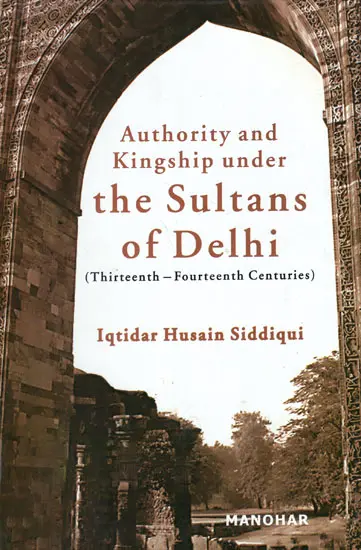
| Item Code: | NAZ652 |
| Publisher: | Manohar Publishers And Distributors |
| Author: | Iqtidar Husain Siddiqui |
| Language: | English |
| Edition: | 2006 |
| ISBN: | 9788173046889 |
| Pages: | 322 |
| Cover: | HARDCOVER |
| Other Details | 9.00 X 6.00 inch |
| Weight | 560 gm |
The Ghurian conquest of north India towards the close of the twelfth-century to the introduction of Sultanate polity which had evolved in Central Asia. This n turn led to important changes in the country's cultural and administrative systems. The job opportunities created by the Sultanate attracted people of talent and learning who emigrated from the neighboring countries and settled in different towns and cities. The mingling of people belonging to different countries and traditions galvanized the process of the synthesis that provided variety and richness to life. The close relationship between the royal court and the landed aristocracy resulted in the development of the culture of shared values which came to be known as India's composite culture.
As no serious attention has so far been paid to the study of institutions, rituals, and traditions associated with the Sultanate polity, an attempt has been made in this volume to study in detail the nature of the Sultanate polity and its impact on medieval Indian society. Using source material hitherto unknown the work analyses the patterns of political behavior of successive Sultans. It also studies the socio-economic changes and the impact of urbanization on the life and culture of the period. A number of historiographical errors found in modern works have been corrected. The work reveals the author's familiarity with an impressive array of sources used and offers a paradigm shift from conventional historiography.
Iqtidar husain Siddiqui retired as professor of history, Aligarh Muslim University , Aligarh. His Publications include : An Eighteenth Century History of North india.
The Ghurian conquest of north India towards the close of the twelfth century AD led to the introduction of Sultanate polity which had evolved in Central Asia. It was a complex system of governance in which rights, functions, and duties of different L components of state and society were specified. The concept of absolute monarchy was repugnant to this system. In the Indian environment, changes were introduced whenever it was thought necessary. As the land-chiefs constituted an important element in the polity, they were befriended and given a share in power, if they acquiesced to the Centre's authority. The close relationship between the royal court and the landed aristocracy led to the development of the culture of shared values which came to be known as India's composite culture.
The discovery of fresh evidence in non-conventional contemporary literature, hitherto unknown, calls for a reappraisal of the system of governance during the Sultanate period. It really enables us to make a departure from the conventional approach. Amongst the non-conventional sources, the anthologies and diwans of poets, tazkiras, both of the sufis and poets, religious literature, and malfuzat (collection of utterances) of the sufi saints who belonged to different fraternities illumine the atmosphere of the culture around the royal court on the one hand and the life of people on the other. In studying the complex socio-political phenomena during the Sultanate period, all the conventional and non-conventional sources have been used carefully. I have avoided entering into the controversy whether the Sultanate was more important historically than the Mughal period. The institutions are built on a sophisticated political system and they survive the Sultanate with necessary modification. The bureaucratization of the ruling elite and military professionalism that had become the distinct features of the Sultanate polity have been discussed in some detail. Likewise the significance of traditions and rituals connected with it were important as their performance enhanced the dabdaba-i-shai (pomp and splendor of the royal court) on the one hand and which also led to social development on the other, has been analyzed for the first time. The nature of its system has been reappraised because it could not receive adequate attention from the modern scholars.
As for the modern works on the history and culture= of Delhi Sultanate, I have sparingly referred to them, in order not to increase the volume of the work. I hope this study will open a new further investigation in the history and culture of Delhi for Sultanate
**Contents and Sample Pages**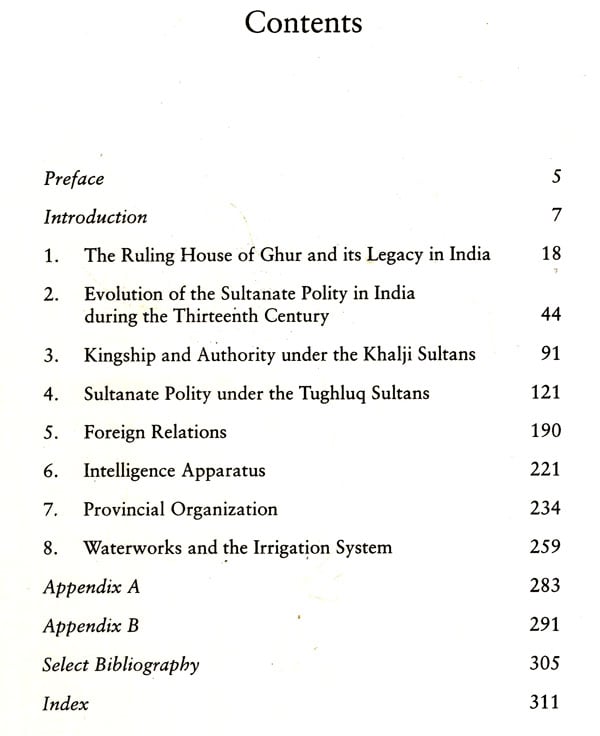
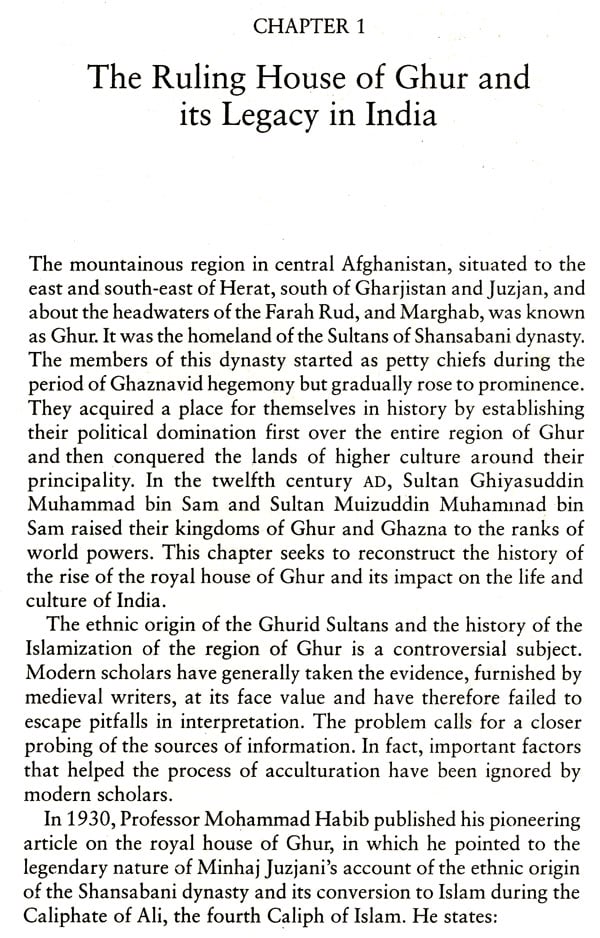
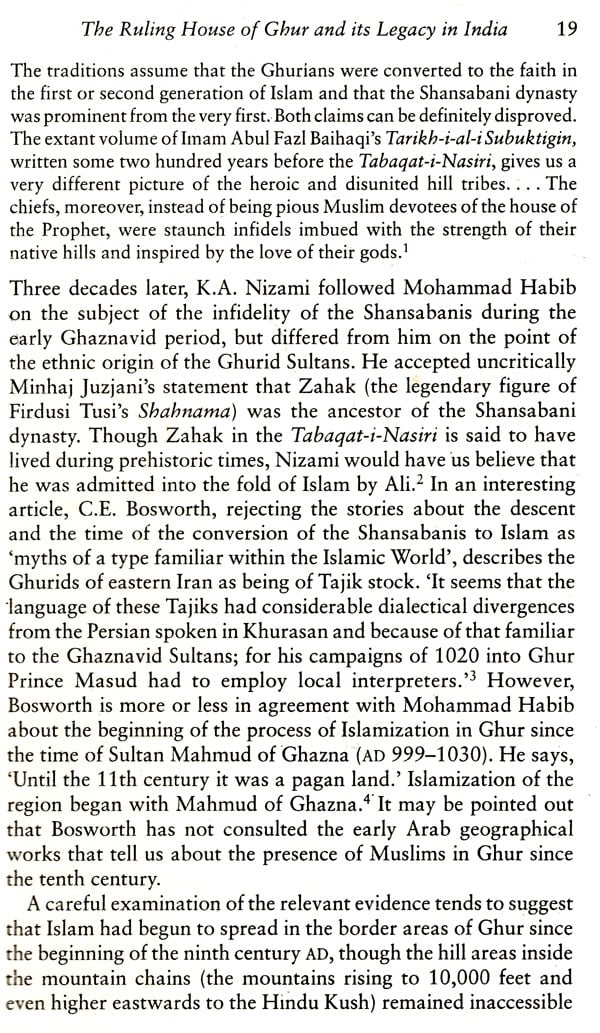
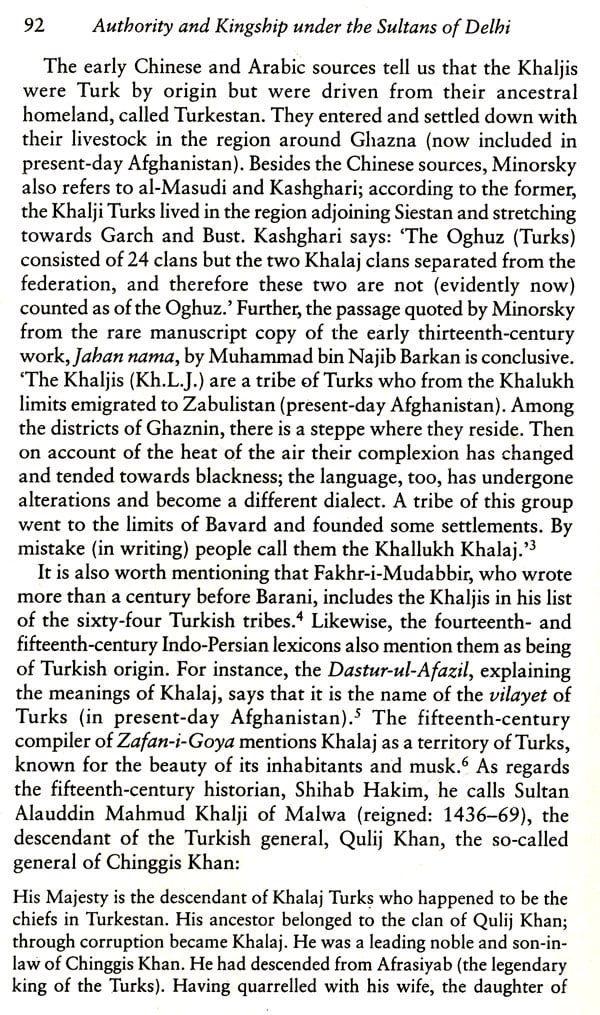
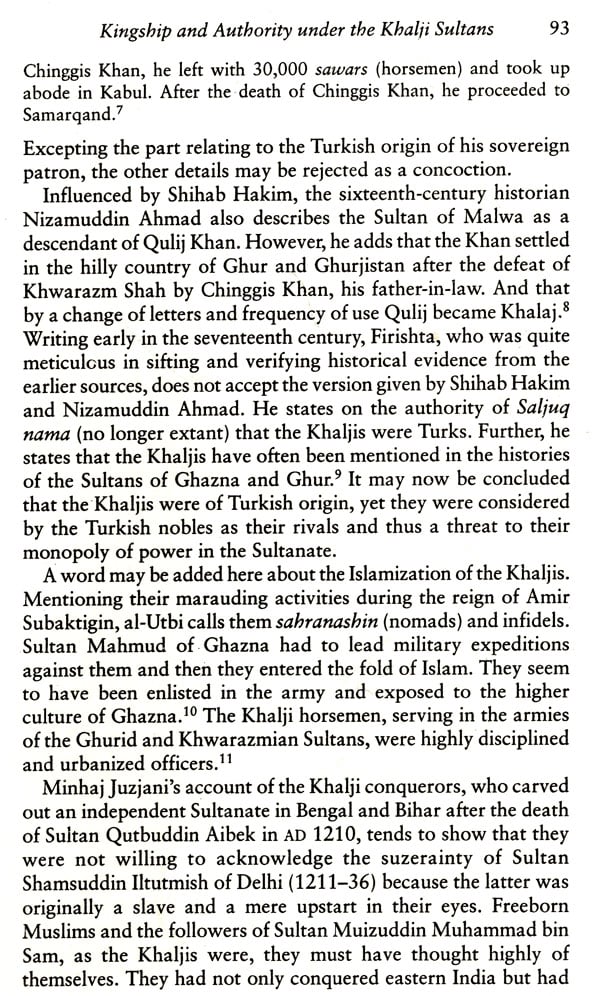
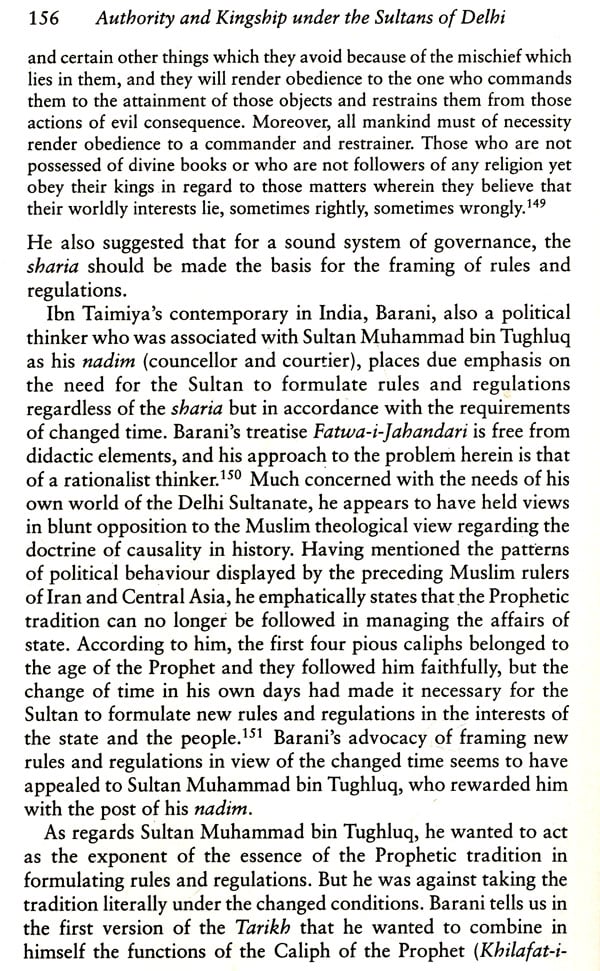
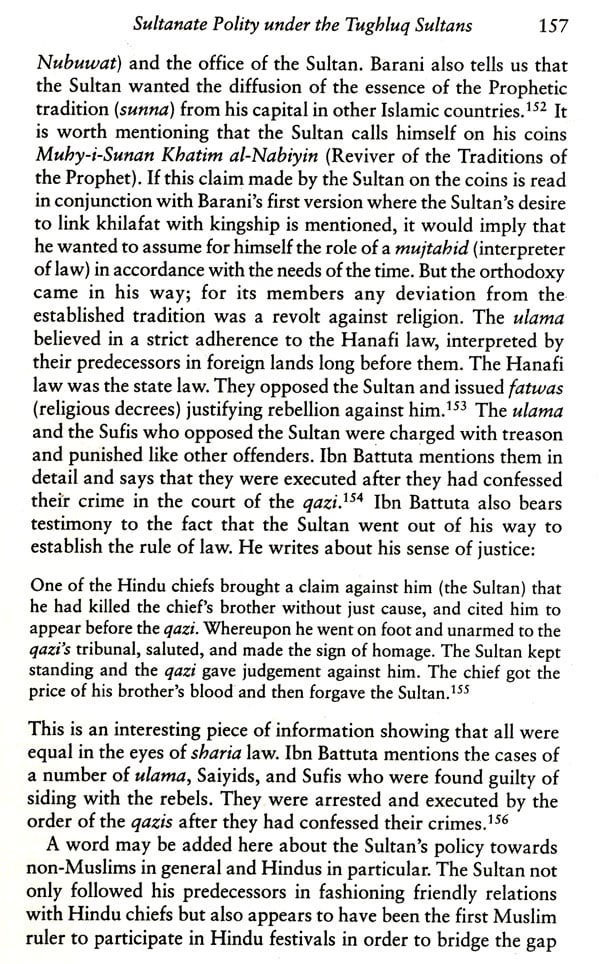
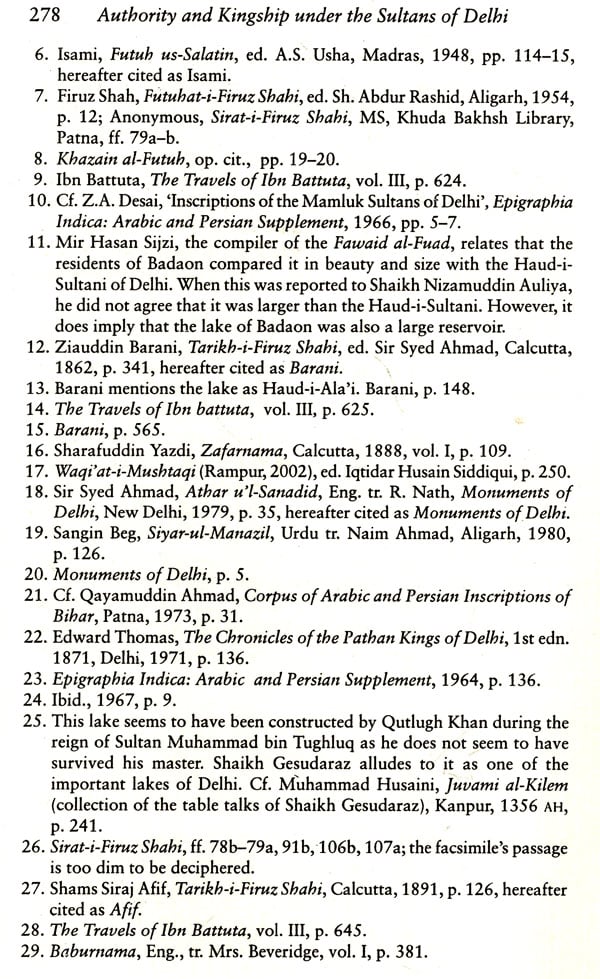
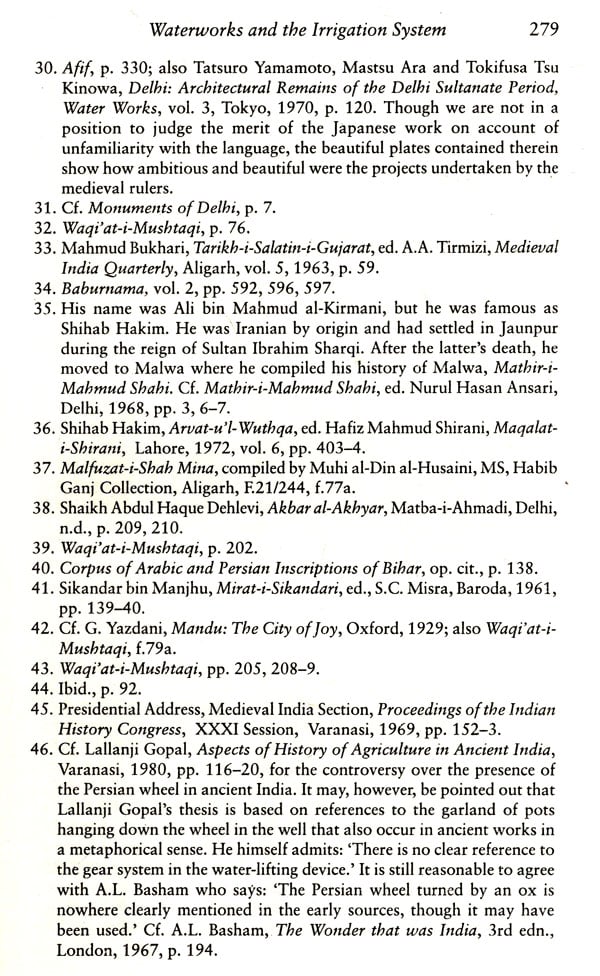

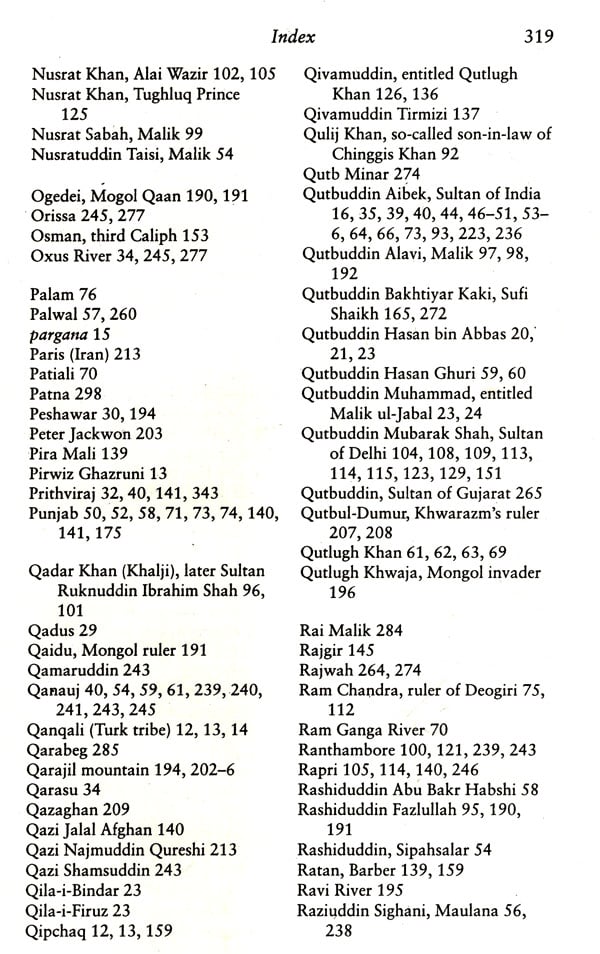
Send as free online greeting card
